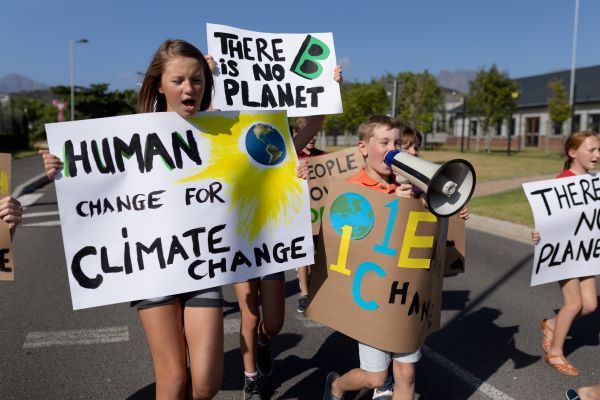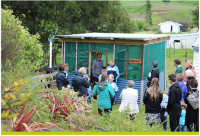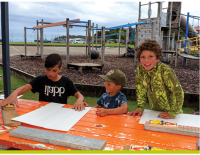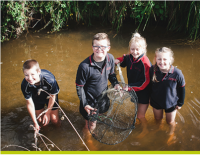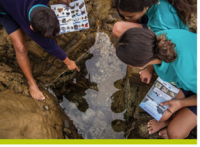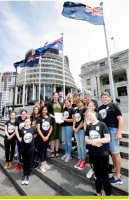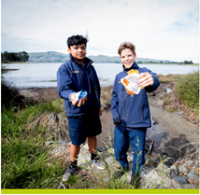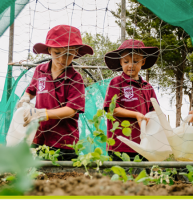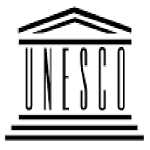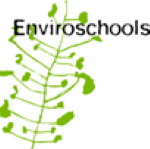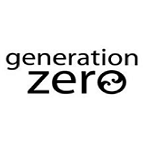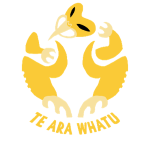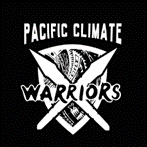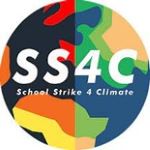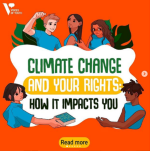Education for Sustainability (EfS) empowers learning communities with the values, knowledges, and skills they need to take meaningful action to ensure a thriving world.
This website provides the rationale for EfS, celebrates learner outcomes, discusses teaching pedagogies, and describes the ways in which EfS can inform a whole-school approach to creating a more sustainable world.
Learners as changemakers
Learners feel validated when their learning conditions can make a difference to the world they are living in. This positions them in a positive relationship with the legacy they are inheriting.
Empowering and mobilising youth is one of the recognisable features of effective EfS practice globally. Focusing on action for change helps to propel our collective awareness of sustainable practices forwards and to develop knowledge, values, and skills in response to EfS and the New Zealand Curriculum.
There is evidence that eco-anxiety is emerging in relation to climate change. Creating conditions where ākonga feel agency is an important way to mitigate this. Empowering teachers and ākonga to identify the structural and institutional practices that could be improved activates ākonga to advocate for societal change at a governmental, community, or policy level. This will develop the ability of youth to identify large levers for change rather than simple individual actions, ensuring that they are empowered to contribute meaningfully to a thriving future.
Teacher pedagogies that encourage action competence – learner action that stems from knowledge-rich inquiry – is outlined within the EfS curriculum, pedagogies, and assessment section.
Stories from schools
The following stories celebrate EfS learning, demonstrating schools at different stages of their EfS learning journeys and providing links to useful resources.
Rural school champions sustainability
Matawai School near Gisborne has integrated sustainability into all areas of the curriculum, empowering students to think outside the box and take care of what’s around them. Thinking sustainably has developed students’ critical thinking skills and analysis as they grow food, compost, investigate alternatives to packaging, and explore sustainable energy.
Students take the lead on climate change
On 27 September 2020 about 170,000 school students, activists, and adults took to the streets in New Zealand to demand action on climate change. Year 13 student Ethan, an organiser of the Taranaki climate change strike, describes the School Strike 4 Climate movement as the biggest youth movement New Zealand has seen in terms of youth empowerment and engagement. “The movement has a wide range of people, but we all are committed to the same goals of action and climate justice,” he says.
Environment enhances curriculum on Rakiura
For the tamariki of Rakiura/Stewart Island, the environment is not only their playground, but also their classroom. The history, places, and people of Rakiura are a major focus of the school’s local curriculum. Environmental projects students have undertaken include trapping rats, making pickle out of kelp collected from the beach, and observing, recording, and analysing data on little blue penguins/kororā.
Back to nature – and an authentic local curriculum
An award-winning outdoor learning area that’s home to native trees, insect hotels, a lizard vivarium, and pollinating leaf-cutter bees is the focus of a rich local curriculum. Students at Woodland School in Southland are enthusiastic kaitiaki of the area as they investigate pest control, take part in riparian planting that has helped prevent river flooding, and explore the sustainability of water. The outdoor classroom has become a driver for the school’s local curriculum and has changed the teaching pedagogy towards inquiry-based learning.
Te Kura Moana – citizen science in action in te ao Māori
Rangatahi in Te Ūpoko o te Ika a Māui are deepening their understanding of kaitiakitanga by exploring marine environments through Te Kura Moana, a programme delivered in te reo Māori. The programme connects oral histories, cultural mapping, mātauranga, and science through hands-on experiences and kura-driven research. Learning experiences have included recording and linking the tides with maramataka (Māori lunar calendar) practices, observing underwater life through snorkelling, and comparing the wildlife in marine reserves with that in unprotected areas.
Students petition government to protect native fish
After students in an all-girls digital classroom at Hikurangi School in Taitokerau discovered the plight of the local waikaka (native black mudfish), they created an online petition and video calling for the government to protect the habitats outside Department of Conservation reserves. The petition was the result of a year’s work by the year 7 and 8 students who found out more about this taonga, which was so important to their iwi in the past.
Enviro changemakers take action
When year 7 and 8 students from South New Brighton School in Christchurch conducted a survey on a local estuary, they were shocked to find enough rubbish to fill three 10-litre drums. In 2018, the school piloted the resource ‘Climate Change’, which has given many of the students and their teachers an urgency for protecting the environment. Students discovered the potential impacts of climate change in their area and took part in activities such as planting trees and composting, as well as personal goals such as walking or cycling to school and eating less meat.
Students are the experts
Students are the experts at Oruaiti School, which has an integrated environmental programme that has seen it become a green/gold Enviroschool, winner of an environmental action in education award, and a finalist for the Prime Minister’s Education Excellence Award. The school uses the local environment to frame learning that is meaningful and purposeful for tamariki in the classroom. As a result of a strengths-based approach, student’s critical thinking and problem-solving skills have improved, and they have become responsible risk-takers.
Celebrating student activism within social movements
Learner participation in climate strikes and protest movements is an entirely appropriate action as part of a knowledge-rich action inquiry in Education for Sustainability.
The importance of creating opportunities for learners to contribute meaningfully to their changing world through environmental activism and social change movements is included in the Convention on the Rights of the Child. Learners are entitled to publicly express their views and to have the support of adults to do so.
Every person under 18 has the right to participate in the decision-making processes that impact them. Decisions that address sustainability and climate change certainly fall into this category.
Resources
UNESCO Project Planner: Top Tips for Youth Action
This is an interactive tool for planning and implementing youth-led action for change.
Enviroschools – Our Stories
Enviroschools feature EfS learner stories. Stories are organised under categories such as ecological buildings, living landscapes, and Māori perspectives.
Generation Zero
Generation Zero is a youth-led climate action organisation, mobilising New Zealanders to engage with decision making and campaign for intergenerational climate justice.
Twitter
Facebook
Instagram
Te Ara Whatu
Rangatahi-led and driven, Te Ara Whatu is for indigenous youth from the Pacific and Aotearoa working for climate action and indigenous sovereignty.
Twitter
Facebook
Instagram
350 Pacific
350 Pacific is an indigenous and youth-led movement to fight climate change. They work with organisers across 17 Pacific Island nations and diaspora communities in Australia, New Zealand, and the US to highlight the vulnerabilities of island countries to climate change, while showcasing the strength and resilience of Pacific peoples. Watch Matagi Malohi:Strong Winds, a powerful spoken-word short on the grit and strength of the Pacific.
Twitter
Facebook
Instagram
School Strike 4 Climate NZ
“We are students aged 8–18 from cities and towns in every corner of New Zealand, united by our concerns for our planet. As the New Zealand movement of Greta Thunberg’s strikes in Europe, we are striking from school to tell our politicians to take our futures seriously and treat climate change for what it is – a crisis.”
Twitter
Facebook
Instagram
Voices of Youth
UNESCO’s Voices of Youth is a global community for young people to learn about development issues (such as environment, education, human rights) and to express their opinions. Their Instagram channel, @voicesofyouth features perspectives from young people around the world.
Twitter
Facebook
Instagram


